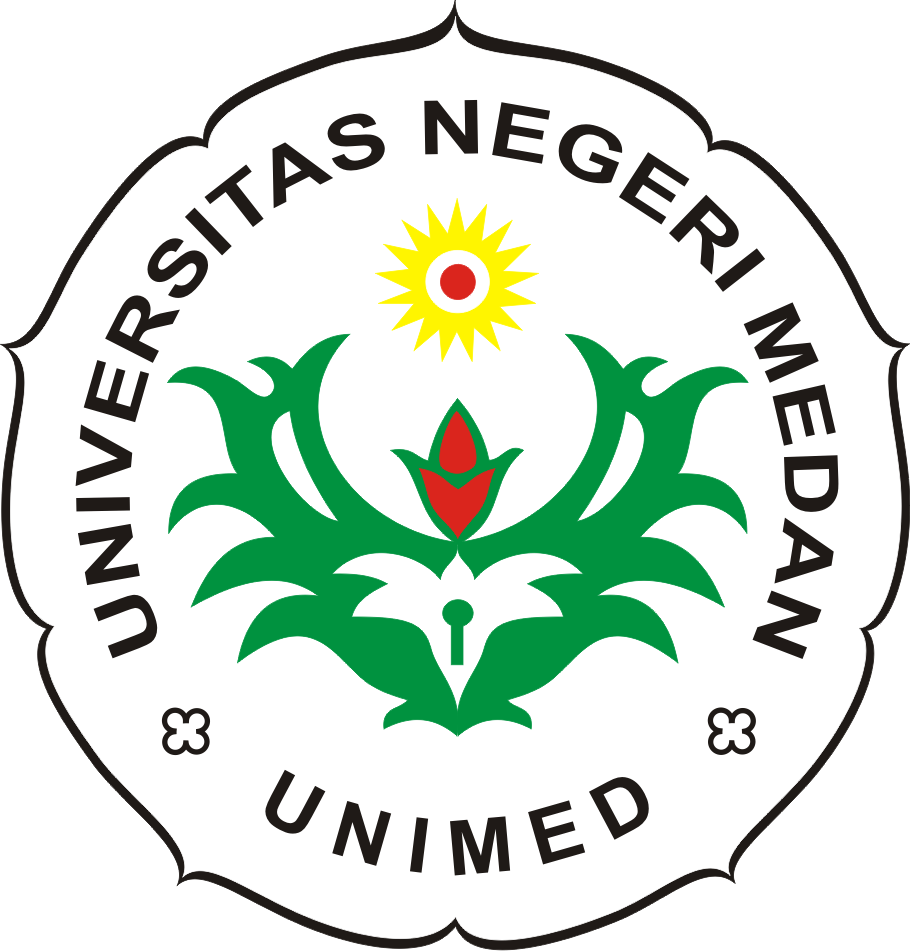Improving Students™ Speaking Skill Achievement Through Tiktok Application Video
DOI:
https://doi.org/10.24114/reg.v13i2.56521Keywords:
Speaking skill, TikTok ApplicationAbstract
This research aimed to improved the students™ speaking skill in English lesson by using action learning strategy. This research was conducted by using Classroom Action Research (CAR). The subject of this research was VIII-A grade of SMPS Plus Kasih Ibu Patumbak which consisted of 20 students. The objective of this research was to Improving Students™ Speaking Skill Achievement Through Tiktok Application Video. This research was conducted in two cycles which each consists™ of planning, acting, observing, and reflecting. The data were gathered through quantitative. The result showed the increasing of students score from the pre-test to post-test II. In pre-test, there was only 10 % (2 stadents) who get point . In post-test 1, there was only 35% (7 studens) who get point , 10 post-test II, there was 90 % (18 students) who get point . Besides that, TikTok Application video helped the students to created the creative class.References
Andi, Kaharuddin, and Burhanuddin Arafah. 2017. œUsing Needs Analysis to Develop English Teaching Materials in Initial Speaking Skills for Indonesian College Students of English. The Turkish online journal of design, art and communication TOJDAC (April): 419“37.
Andres Kaplan & Michael Haen Lein, 2010. User Of The World, Unite! The Challenges and Opportunities Of Social Media, Business Horizons.
Arikunto, S. 2017. Pengembangan Instrumen Penelitian dan Penilaian dau Evaluasi, Jakarta: Rineka Cipta
Asyiah, Dewi Nur. 2017. œThe Vocabulary Teaching and Vocabulary Learning: Perception, Strategies, and Influences on Students™ Vocabulary Mastery. Jurnal Bahasa Lingua Scientia 9(2): 293“318.
Baharuddin. The Communicative Competence-Based English Language Teaching. Trust Media. Yogyakarta. 2013.
Kuning, D. S. (2019). Technology in Teaching Speaking Skill. Journal of English Education, Literature and Linguistics, 2(1), 50“59. https://doi.org/10.31540/jeell.v2i1.243
Masruddin, M. (2018). The Efficacy of Using Short Video through Group Work in Teaching Speaking to Indonesian English as Foreign Language (EFL) Students. Arab World English Journal, 9(3), 282-293“293. https://doi.org/10.24093/awej/vol9no3.19
Nurani, Siti, and Amrina Rosyada. 2015. œImproving English Pronunciation of Adult ESL Learners through Reading Aloud Assessments. Lingua Cultura 9(2): 108“13.
Perdana, Silvia Putri, and Wida Rianti. 2021. œThe Effect Of Story Completion Technique Toward St Udent ™ s Speaking Skill By Using Whats ™ App At The Second Grade Of SMAN. Journal of Innovative and Creativity(JOECY) 1(1): 36“43.
Pratiwi, Yovita Asti. 2018. œStudents™ Perception on Impromptu Speech to Improve Speaking Fluency in Speaking Class. Journal Pendidikan: 97.
Singh, Charanjit Kaur Swaran, Amreet Kaur Jageer Singh, Nur Qistina Abd Razak, and Thilaga Ravinthar. 2017. œGrammar Errors Made by ESL Tertiary Students in Writing. English Language Teaching 10(5): 16.
Sinta, I., & Zulfitri. (2022). Students™ Experience in Vocabulary Memorizing of Adjective by Using TikTok Duet Video. Journal Educational Research and Social Studies, 3(1).
Downloads
Published
Issue
Section
License
Copyright (c) 2024 Juni Ari Martuah Saragih

This work is licensed under a Creative Commons Attribution-NonCommercial-ShareAlike 4.0 International License.
Authors who publish with this journal agree with the following terms:
- Authors retain copyright and grant the journal right of first publication with the work simultaneously licensed under a Creative Commons Attribution License that allows others to share the work with an acknowledgment of the work's authorship and initial publication in this journal.
- Authors are able to enter into separate, additional contractual arrangements for the non-exclusive distribution of the journal's published version of the work (e.g., post it to an institutional repository or publish it in a book), with an acknowledgement of its initial publication in this journal.
- Authors are permitted and encouraged to post their work online (e.g., in institutional repositories or on their website) prior to and during the submission process, as it can lead to productive exchanges, as well as earlier and greater citation of published work (See The Effect of Open Access).
- This work is licensed under a Creative Commons Attribution-ShareAlike 4.0 International License.






